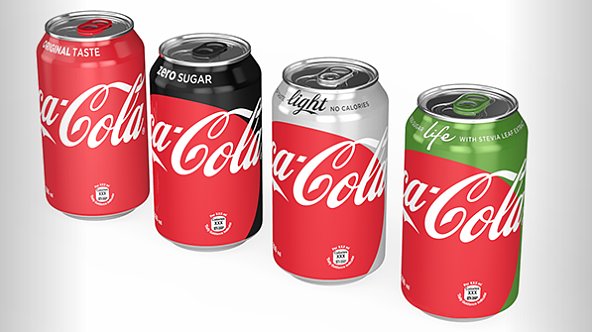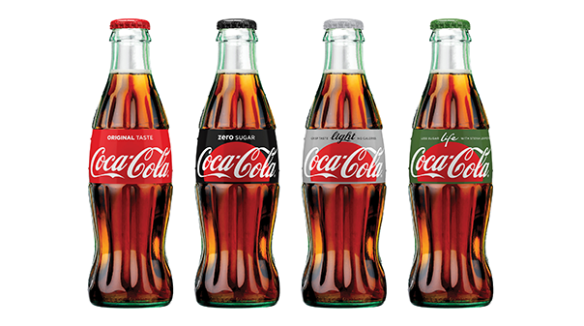Charles Platkin(picture: Handout)
Dan Barber is the award-profitable chef of Blue Hill, a restaurant in new york's West Village; and Blue Hill at Stone Barns, discovered within the nonprofit farm and training core Stone Barns core for food & Agriculture in upstate long island. Chef Barber, the creator of "The Third Plate" (Penguin Press, 2014) is an ingenious and identified leader in meals and agriculture policy. I had the probability to do an e-mail interview with him and learn extra about a few of his ideas and philosophy on meals, farm-to-desk eating places, and being a chef.
diet Detective: good day Dan, thanks for the probability to interview you. i might like to know the way you became interested in food.
Chef Dan Barber: I grew up in manhattan metropolis however spent my summers haying the fields at Blue Hill, my grandmother's farm in the Berkshires. She had a sense of accountability about maintaining the panorama, and i think that ultimately translated into my feelings about food, which are to a point that there is a responsibility attached to the manner we consume or the place that we consume.
food plan Detective: tell us about your standard meals philosophy.
Chef Dan Barber: The hope is that we're going beyond easily purchasing local materials; we're trying to create a model of ingesting that supports the entirety of the Hudson Valley landscape. That's now not basically a new idea. The ultimate cuisines on the earth advanced to go well with certain environments.

Dan Barber (image: Mark Ostow)
weight-reduction plan Detective: can you clarify the connection between Blue Hill (your restaurant) and Stone Barns core for meals & Agriculture?
Chef Dan Barber: Our restaurant Blue Hill at Stone Barns is the for-income accomplice (and tenant) of Stone Barns middle, an eighty-acre nonprofit farm and schooling core. It's a really particular place, located on what was the Rockefeller family's dairy back within the 1930s, but the goal is to deliver a mannequin that can be replicated any place. will we connect americans to where their food comes from? will we encourage more of a speak between chefs, eaters and farmers, where we can impact one an additional person's choices within the field and the kitchen to maximize fitness, economy and flavor?
weight-reduction plan Detective: in terms of farm-to-desk, consuming in the neighborhood, you've observed here in the ny times: "more than a decade into the flow, the promise has fallen short. For all its successes, farm-to-table has not, in any primary means, remodeled the financial and political forces that dictate how our food is grown and raised." are you able to briefly clarify? That changed into from 2014 — is it getting any stronger?
Chef Dan Barber: to say that I'm a card-carrying member of farm-to-desk is an irony; I own a restaurant within the core of a farm. So my intention isn't to discredit the farm-to-desk circulate, but I do suppose we should do extra as cooks and eaters to move it forward and create a tradition around the appropriate form of farming. In other phrases, how can we adapt our diets to satisfy the needs of nature? That's going to contain some radical changes in how we eat, including relocating far from the protein-centric plate of food and instead enabling grains, legumes, and greens to take core stage. but I suppose we're relocating within the right route, exceptionally now that greater chefs are celebrating those constituents on their menus.
San Francisco is famous for its farm-to-table eating. discover which chefs are stirring up the food scene. Time
food regimen Detective: to your 2014 book, "The Third Plate," you focus on wheat being something of a main character — can you clarify? there is a sort of anti-bread/wheat move happening nowadays; why is wheat vital?
Chef Dan Barber: It looks to me that we don't speak adequate about wheat. worldwide, it covers more acreage than some other crop, and it occupies a big part of our diets as well. but it surely doesn't seem to capture our attention within the equal way as, say, an heirloom tomato. As I begun learning wheat for the ebook, i realized anything else, which is that wheat is truly on the coronary heart of Western civilization. Communities came collectively round these networks of farmers, millers, maltsters, bakers, and cooks. We're all at once seeing a revitalization of these connections, and it reminds us that the story of wheat is the story of who we are.
food plan Detective: Do you believe native foods are stronger for us? if so, enhanced in what feel?
Chef Dan Barber: purchasing direct from a farmer potential you're getting components that have been chosen for your locality and picked at the best time. Nothing is lost in food or flavor all the way through transportation and storage, which potential the meals is superior for us and tastier, too.
food plan Detective: I examine this in an interview from you: "cooks are customary for our capability to create fashions and form markets. What looks on a menu in a white tablecloth restaurant someday trickles right down to the bistro the next, and eventually influences time-honored meals tradition. Which means we have the energy to have an effect on americans's eating habits." can you provide us an instance?
Chef Dan Barber: just seem to be at the recent kale craze, which began on restaurant tables in big apple and now has its own holiday. That's evidence of the chef's impact. but there are more cautionary examples, too. I begun cooking in the period of movie star chefs like Paul Prudhomme, whose recipe for blackened redfish became so standard it pretty much exhausted a complete species of fish.
weight loss plan Detective: We like to feel that organic farms are being run by caring, environmentally conscientious farmers — is that in fact the case? What are the essential ameliorations between industrial and organic farms and between the farmers that run them? are you able to basically believe any of these days's farmers, or any one in the meals industry for that depend? really, is American agriculture pervasively tainted by massive business?
Chef Dan Barber: Of course, there are many trustworthy, caring, environmentally conscientious farmers out there, but we can't rely on labels to outline them. As patrons, we should birth asking questions about the manner our meals is grown that go past just where it comes from or no matter if or now not chemicals were used. How is the lengthy-time period health of the soil managed? What variety of diversity is there on the farm — now not just certain types, but what are the rotations of greens, legumes, grains and livestock? these sorts of questions always cause a higher realizing of a farmer's practices, and of how the food will style.
u . s . these days
four chefs concerned about sourcing locally
weight loss program Detective: what is the one food coverage trade on the local (or state or federal) degree that would have the foremost affect on health and food?
Chef Dan Barber: more govt funding for public plant breeders — the individuals writing the recipes for our seeds. Most plant breeders these days get hold of the vast majority of their funding from agribusiness, which capacity they're breeding for uniformity and yield in place of meals or taste. right here's a technique to reimagine our meals for the better.
food regimen Detective: Who and what influenced the style you think about meals?
Chef Dan Barber: I've been lucky to get to understand some remarkable farmers. Their strategies differ, but they share a choice to work with nature instead of in opposition t it and to think about issues from a biological standpoint. That's not some thing that chefs or eaters are proficient to do, however we should be.
weight-reduction plan Detective: What are some of the food, farm and meals safety issues that could be changed, solved, or made worse over the subsequent 10 years? What may still we expect as meals advocates and food patrons?
Chef Dan Barber: The dialog round meals waste is one so that you can continue to grow. complications of this scope often believe insurmountable, but here is a case the place consumers have colossal knowledge to make change. (in spite of everything, the typical American family throws out about a quarter of the meals they purchase.) And the answer will continuously take the form of extra delicious meals. If we do our jobs appropriate as food advocates and patrons, in 50 years lots of the gadgets that we now discard as "waste" will be anticipated components of our typical ingesting.
weight-reduction plan Detective: What's the one kitchen utensil or tool which you could't live with out?
Chef Dan Barber: A spoon. i use the equal sort of spoon for everything: flipping ingredients in the pan, tasting a sauce, or plating a dish.
diet Detective: What do you accept as true with the world's most excellent meals?
Chef Dan Barber: Pasta and tomato sauce within the center of August.
REVIEWED.COM OVENS
A Farm-to-desk Social network? Yep, That Exists
food plan Detective: Breakfast this morning?
Chef Dan Barber: Iced coffee and a White Moustache yogurt
food regimen Detective: What's to your refrigerator and pantry presently?
Chef Dan Barber: At home? Grass-fed milk from Blue Hill Farm and a morning haul of roots and fruits from the NYC Union rectangular Greenmarket. We reside a few blocks away, so I walk there with my spouse and daughter most days.
diet Detective: Your closing meal could be?
Chef Dan Barber: whole wheat bread, butter and a powerful beer.
diet Detective: Your worst summer season job?
Chef Dan Barber: a particularly punishing culinary internship in Provence — which on the surface doesn't sound that punishing, i do know.
brief techniques on here ...
food plan Detective: biological meals?
Chef Dan Barber: critical to accept as true with, but we deserve to complicate the photograph a bit of to flow nearer to a true recipe for respectable food from the ground up.
weight loss program Detective: raw food?
Chef Dan Barber: now not a diet unto itself.
food regimen Detective: artificial sweeteners?
Chef Dan Barber: None. I'm trying to hand over subtle sugars absolutely, however I nevertheless relapse.
weight-reduction plan Detective: weight-reduction plan soda?
Chef Dan Barber: Nope.
diet Detective: meals additives and preservatives?
Chef Dan Barber: I defer to Joan Gussow, who famously pointed out, "I opt for butter to margarine as a result of I have confidence cows more than chemists."
weight-reduction plan Detective: dietary dietary supplements?
Chef Dan Barber: true nutrition is delivered in the sort of a various weight loss program.
weight loss plan Detective: GMO foods?
Chef Dan Barber: No to GMOs, however sure to contemporary plant breeding. Our imaginative and prescient of seeds is so polarized between GMOs and heirlooms, but there is an entire spectrum that exists between those two extremes that we deserve to pursue for the longer term.
fact sheet
Your web page: www.bluehillfarm.com
place: new york, new york
native land: ny, big apple
latest job title: Chef / co-proprietor, Blue Hill and Blue Hill at Stone Barns
Culinary training: overseas Culinary center (previously referred to as French Culinary Institute, NYC)
Résumé: Chef/co-proprietor, Blue Hill and Blue Hill at Stone Barns; writer of "The Third Plate"
favorite fit meals and dwelling sites: Grist, mother Jones, Civil Eats
Charles Platkin, Ph.D. is a nutrients and public fitness suggest and founder of DietDetective.com, and the director of the ny city meals coverage middle at Hunter school.
examine or Share this story: http://on.rgj.com/1Tz6bq2


